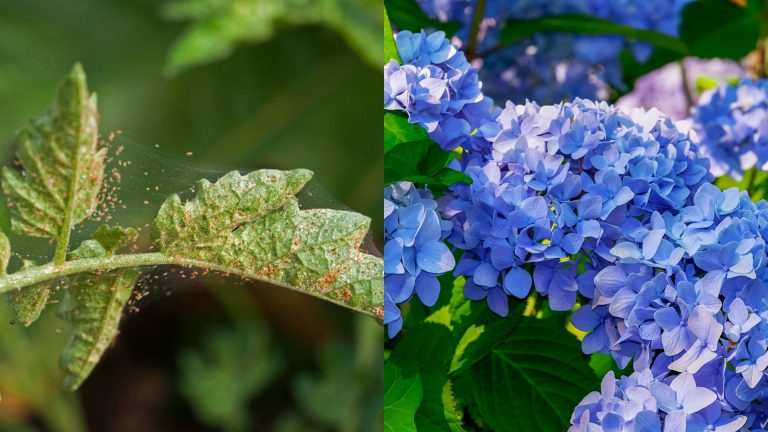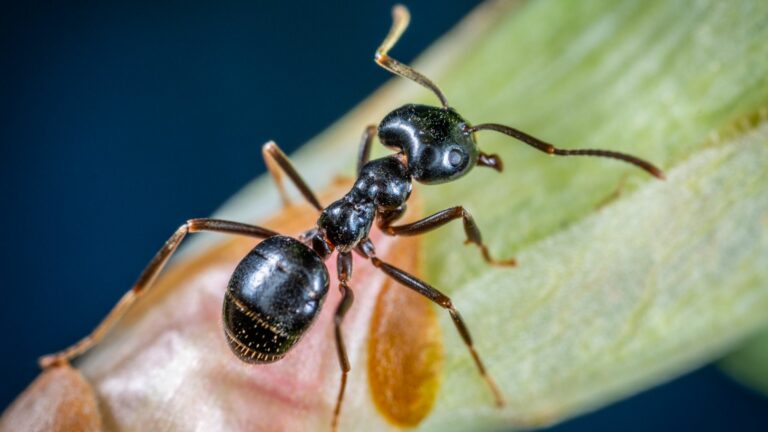15 Fly-Repelling Patio Tricks Gardeners Swear By
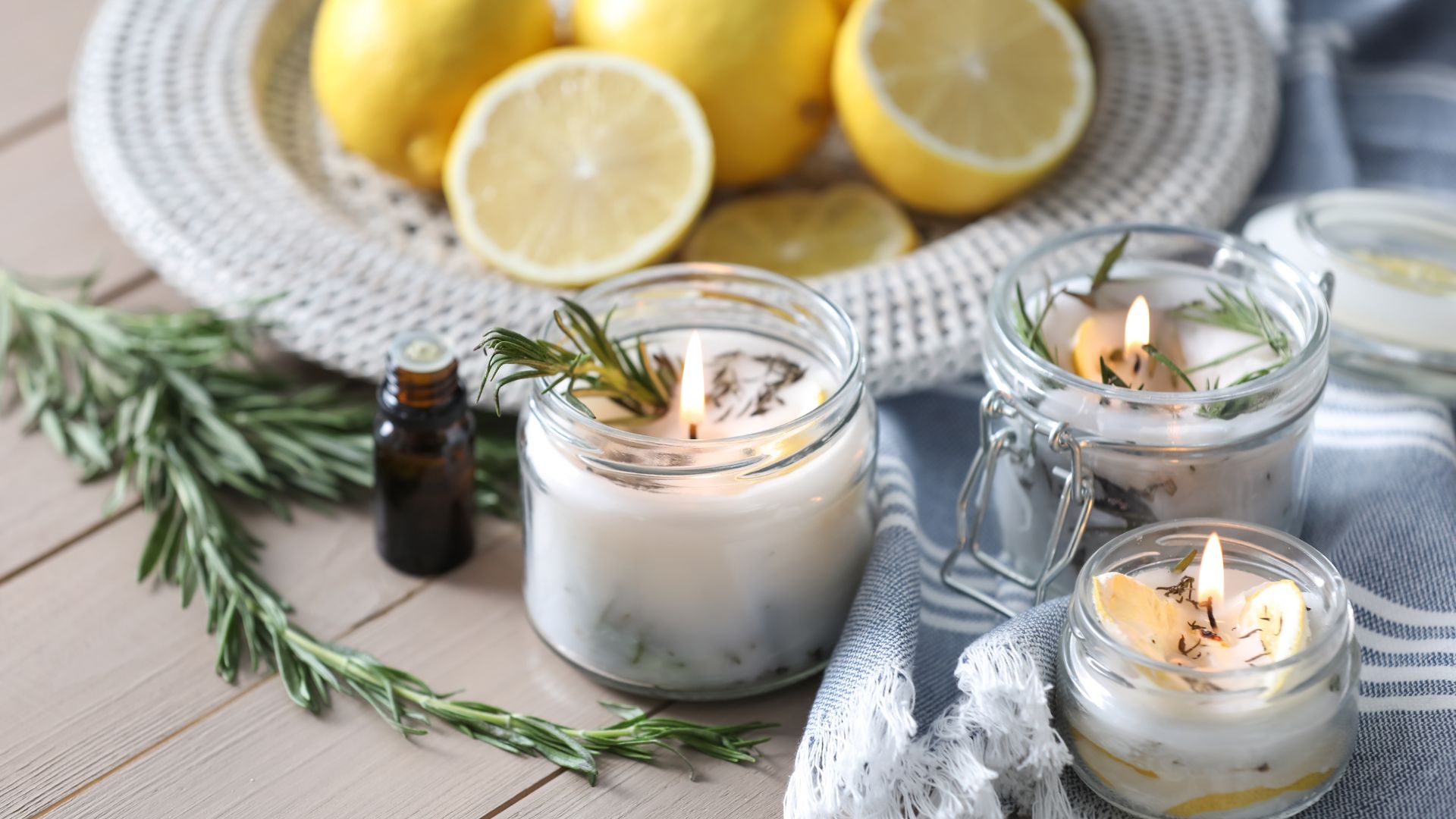
Few things shatter the calm of a summer hangout faster than a swarm of flies dive-bombing your plate. Warm weather brings these unwelcome guests in droves—but you don’t need fancy traps or chemical sprays to fight back.
Gardeners have found clever natural tricks that really work. Herbs like basil, mint, and lavender repel flies with their strong scents, and planting them nearby doubles as decor and defense. A simple bowl of vinegar with a drop of dish soap can lure and trap them quietly.
Want to add a little style to your fly battle? Try citrus-studded cloves on the table or hang bags of water with shiny pennies—they might look quirky, but they’ve kept many patios peaceful. Nature’s got your back—and it smells good too.
1. Plant Basil Near Seating Areas
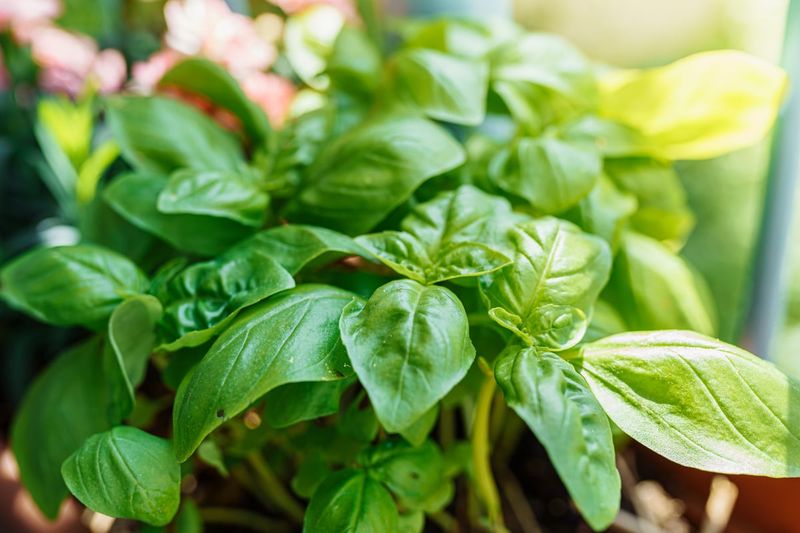
The strong aroma that makes basil delicious in pasta also naturally repels flies. The scent interferes with their ability to locate food sources, keeping them away from your outdoor dining area.
Growing basil in pots allows you to move them exactly where needed when entertaining. Place a few plants around the perimeter of your seating area for maximum effectiveness.
I’ve found that having fresh basil on hand doubles as both fly protection and a convenient herb for impromptu cooking. Guests are always impressed when I snip a few leaves for their drinks or dinner plates.
2. Create A DIY Citrus Repellent
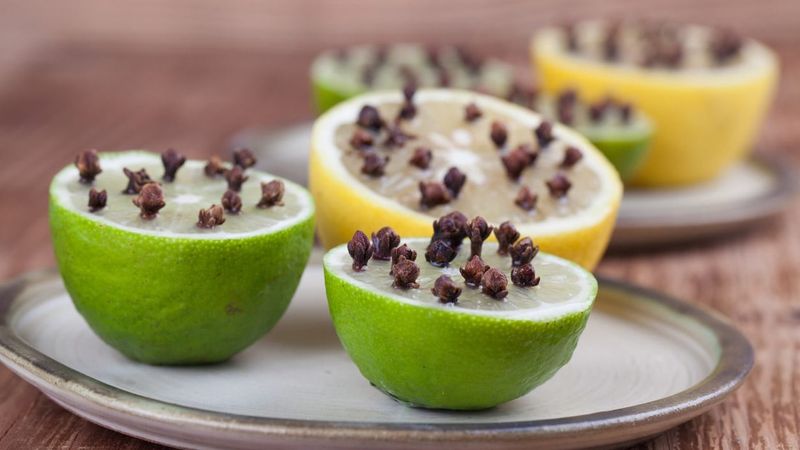
Flies absolutely detest the smell of citrus oils found in lemons, limes, and oranges. Piercing citrus peels with cloves creates a natural repellent that works for hours.
For best results, use fresh citrus and replace them every few days. The combination of citrus and cloves creates a pleasant aroma for humans but sends flies searching for friendlier territory.
My neighbors were skeptical when I brought these to our block party, but by evening’s end, everyone wanted to know why the flies congregated at other tables while avoiding ours completely.
3. Hang Pennyroyals In Bunches
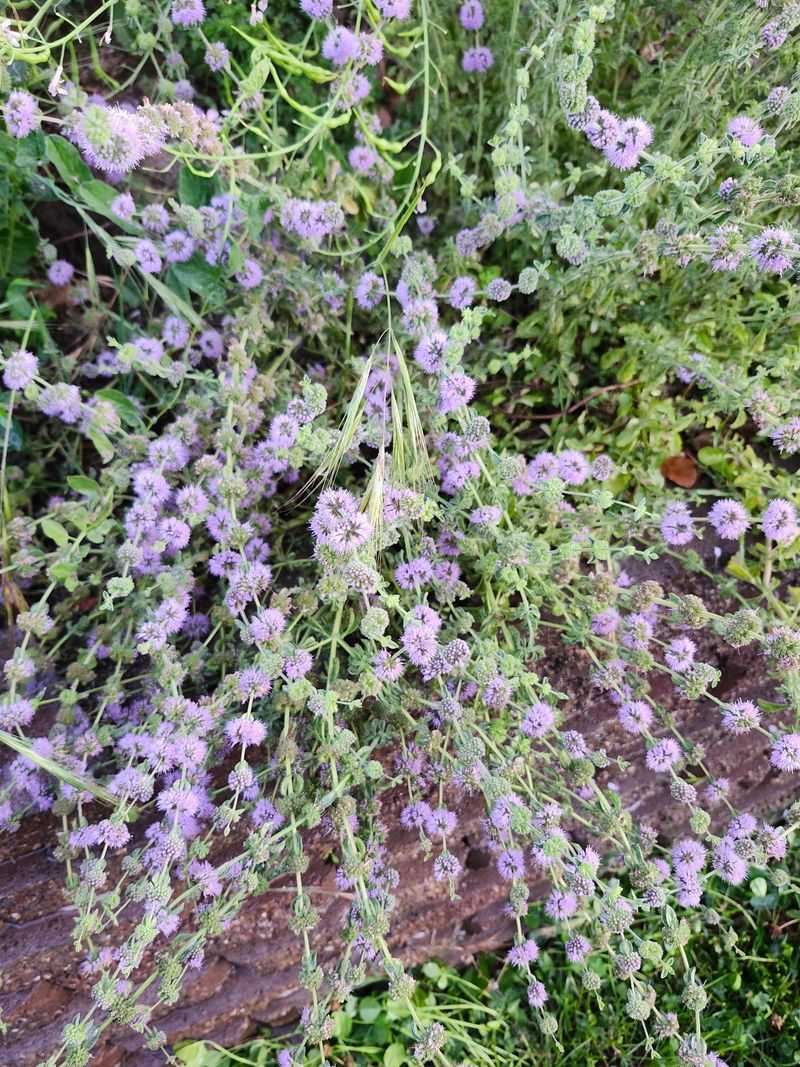
This mint family member contains pulegone, a natural compound that flies find particularly offensive. Hanging dried bunches from patio rafters or placing potted pennyroyal around seating areas creates a fly-free zone.
The subtle fragrance isn’t overwhelming to humans but creates an invisible barrier flies won’t cross. Crush a few leaves occasionally to release more of the natural oils for enhanced effectiveness.
During last summer’s family reunion, my aunt couldn’t believe we weren’t being bothered by flies. The pennyroyal bunches hanging above us were working their magic without anyone even noticing them.
4. Set Up Apple Cider Vinegar Traps
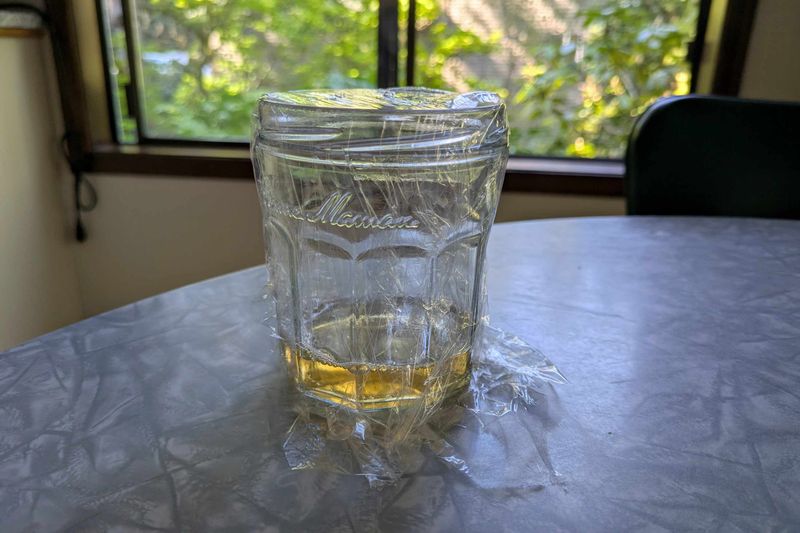
A simple solution of apple cider vinegar, dish soap, and water creates an irresistible trap for flies. The vinegar’s sweet smell attracts them, while the soap breaks surface tension, causing them to sink.
Mason jars work perfectly for these traps. Cover with plastic wrap secured by a rubber band, then poke small holes in the top. Place several around your patio perimeter for best coverage.
The first time I tried this method, I was shocked at how many flies it caught overnight. Now it’s my go-to solution before any outdoor gathering.
5. Install Ceiling Fans Overhead
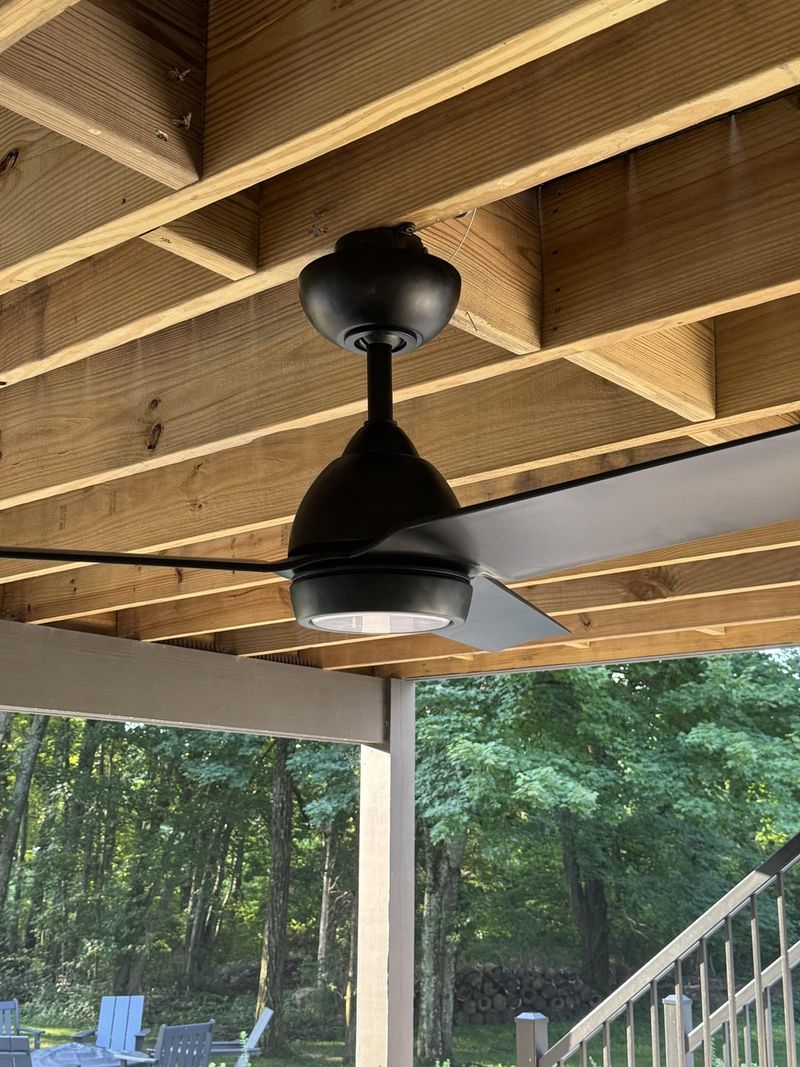
Flies struggle against even gentle breezes, making outdoor ceiling fans an effective deterrent. The constant air movement makes it difficult for flies to land and navigate around your patio space.
Setting fans to the lowest speed is usually sufficient to keep flies away without creating uncomfortable wind for guests. This method works especially well for covered patios and pergolas.
After installing a fan above our dining area, fly problems practically disappeared overnight. The gentle breeze also keeps us cooler during summer meals, making it a dual-purpose solution I wish we’d tried years earlier.
6. Burn Coffee Grounds In A Fire-Safe Dish
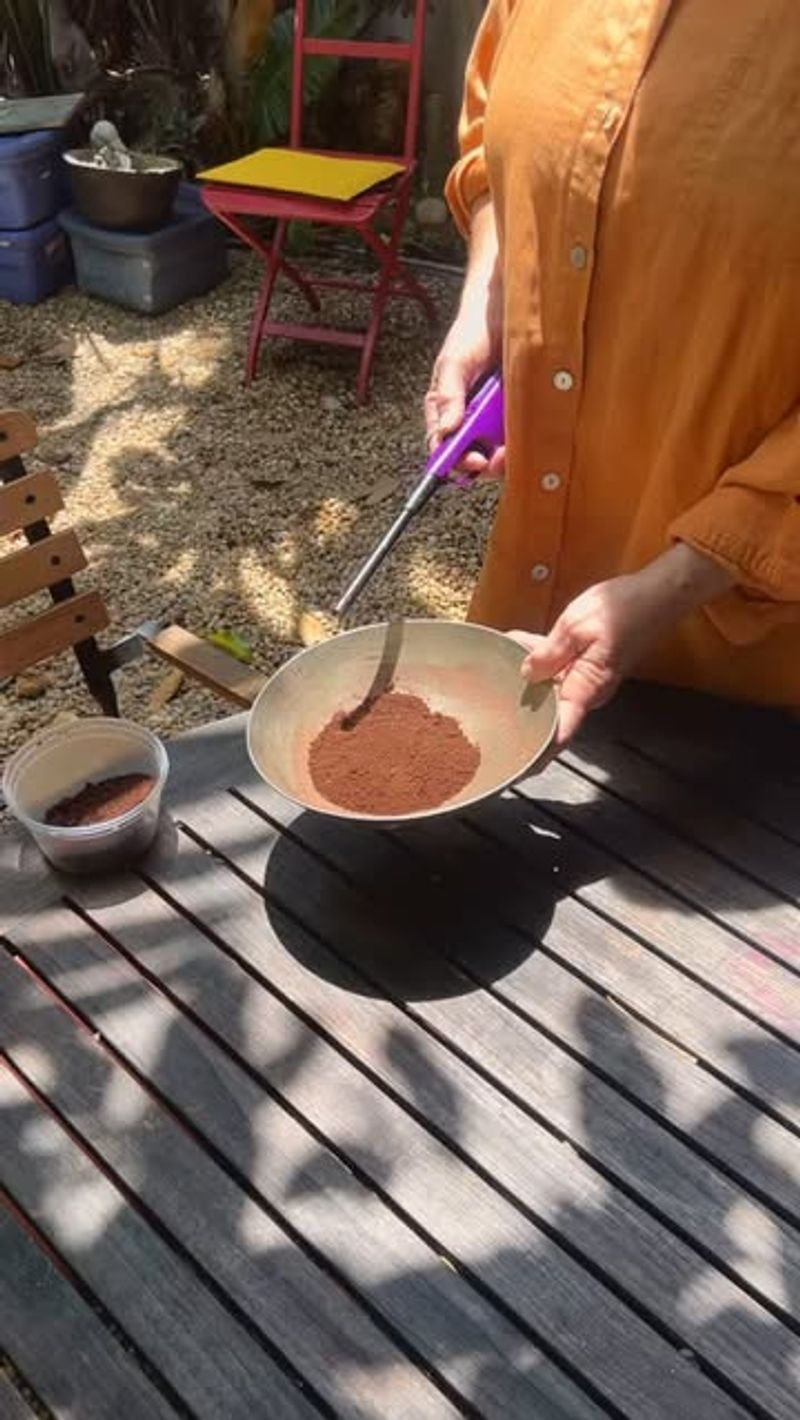
Used coffee grounds produce a smoky scent that naturally repels flies when burned. Simply dry your morning coffee grounds completely, then place them in a fire-safe dish and light them.
The grounds will smolder rather than flame, creating a steady stream of fly-repelling smoke. Place several dishes strategically around larger patio areas for comprehensive coverage.
During a recent cookout, my brother-in-law noticed we weren’t swatting flies like usual. The small dishes of smoldering coffee grounds were working their magic without interfering with the food aromas.
7. Strategically Place Lavender Pots
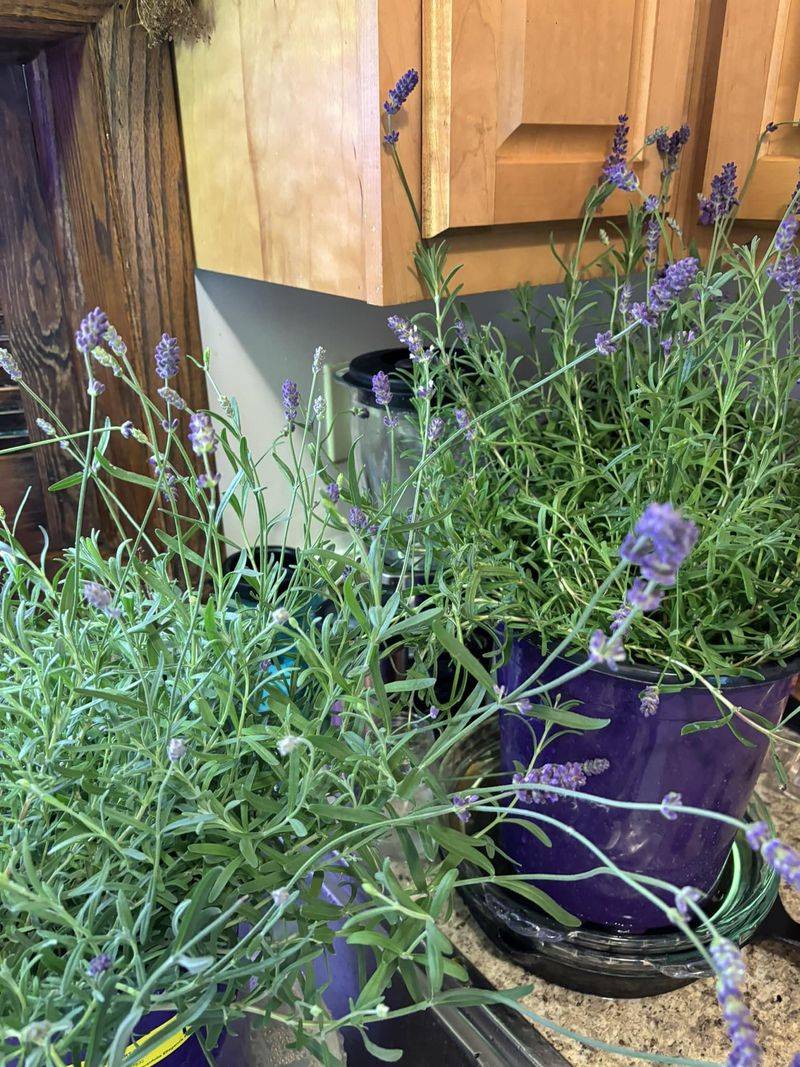
The sweet fragrance humans love in lavender contains compounds that disrupt flies’ sensing abilities. Potted lavender placed around seating areas creates both beauty and protection.
French lavender varieties tend to have stronger scents and work particularly well. On hot days, gently brush your hand across the plants occasionally to release more of the natural oils.
We lined our patio steps with lavender pots three summers ago, and the reduction in flies was immediately noticeable. As a bonus, the purple blooms add a gorgeous touch to our outdoor space.
8. Spray Diluted Essential Oils
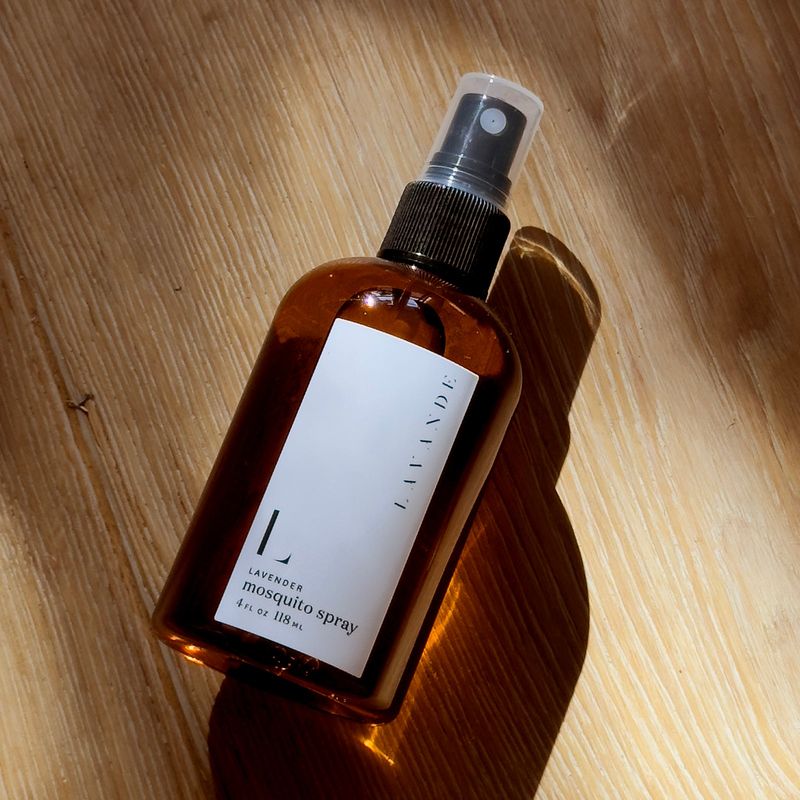
A homemade spray of water and essential oils creates an invisible barrier flies won’t cross. Eucalyptus, lemongrass, and lavender oils are particularly effective when combined in a simple spray bottle solution.
Mix 10-15 drops of essential oils with water and a splash of witch hazel to help the oils disperse. Spray furniture, cushions, and perimeter areas about 30 minutes before guests arrive.
The subtle fragrance from this spray always gets compliments from visitors, who have no idea it’s actually working as powerful fly protection. I keep a bottle ready all summer long.
9. Grow Fly-Repelling Herb Gardens
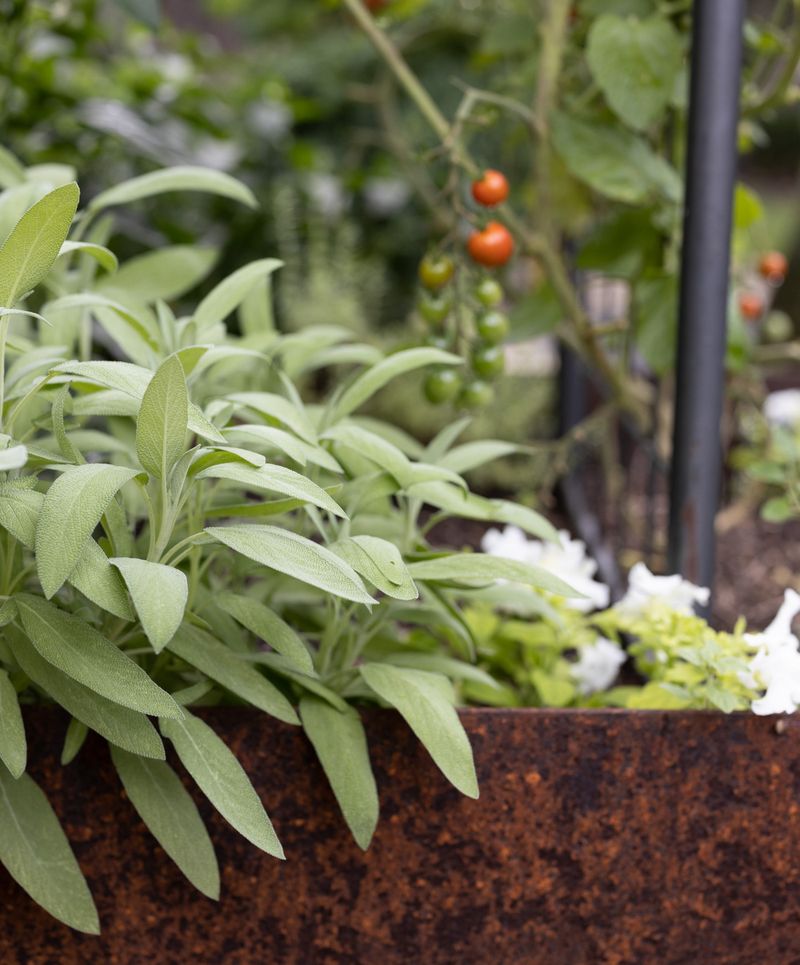
Creating a dedicated herb garden with rosemary, mint, basil, and sage establishes a natural fly barrier. These herbs contain volatile compounds that interfere with flies’ ability to find food sources.
Planting these herbs in containers allows you to arrange them strategically around your patio perimeter. Trim them regularly to encourage more growth and stronger scent production.
The herb garden along our patio edge started as fly protection but quickly became my favorite cooking resource. Fresh herbs just steps away while dining outdoors feels luxurious, and the fly protection is a wonderful bonus.
10. Hang Decorative Fly Curtains
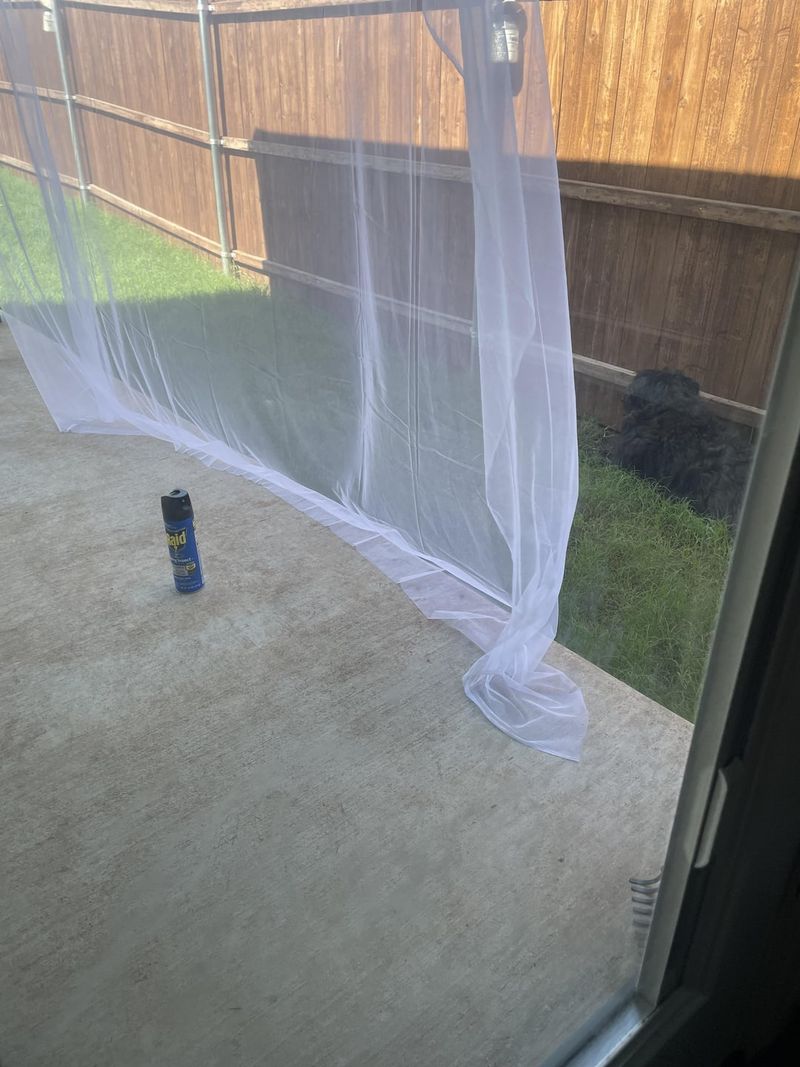
Strings of reflective materials like old CDs, aluminum foil strips, or specially designed reflective tape create light patterns that disorient flies. The constantly shifting reflections confuse their compound eyes and navigation systems.
Hang these decorative curtains in doorways or around patio perimeters where flies typically enter. The gentle movement from natural breezes enhances the disorienting effect.
My grandmother used this trick with strips of aluminum foil, and I’ve modernized it with colorful reflective tape. Guests always comment on the pretty “wind chimes” without realizing they’re actually sophisticated fly deterrents.
11. Pour A Vodka-Based Spray

A simple mixture of cheap vodka, lemongrass oil, and water creates a powerful fly deterrent spray. The alcohol evaporates quickly, leaving behind scent compounds that flies actively avoid.
Apply this spray to table surfaces, chair backs, and other non-fabric surfaces about 15 minutes before using the space. The alcohol evaporates completely, leaving no residue or strong smell.
When hosting outdoor dinners, I discreetly spray this mixture around the dining area beforehand. Our family used to joke about the “mysterious force field” keeping flies away until I finally revealed my simple vodka spray secret.
12. Set Up Cucumber Peel Stations
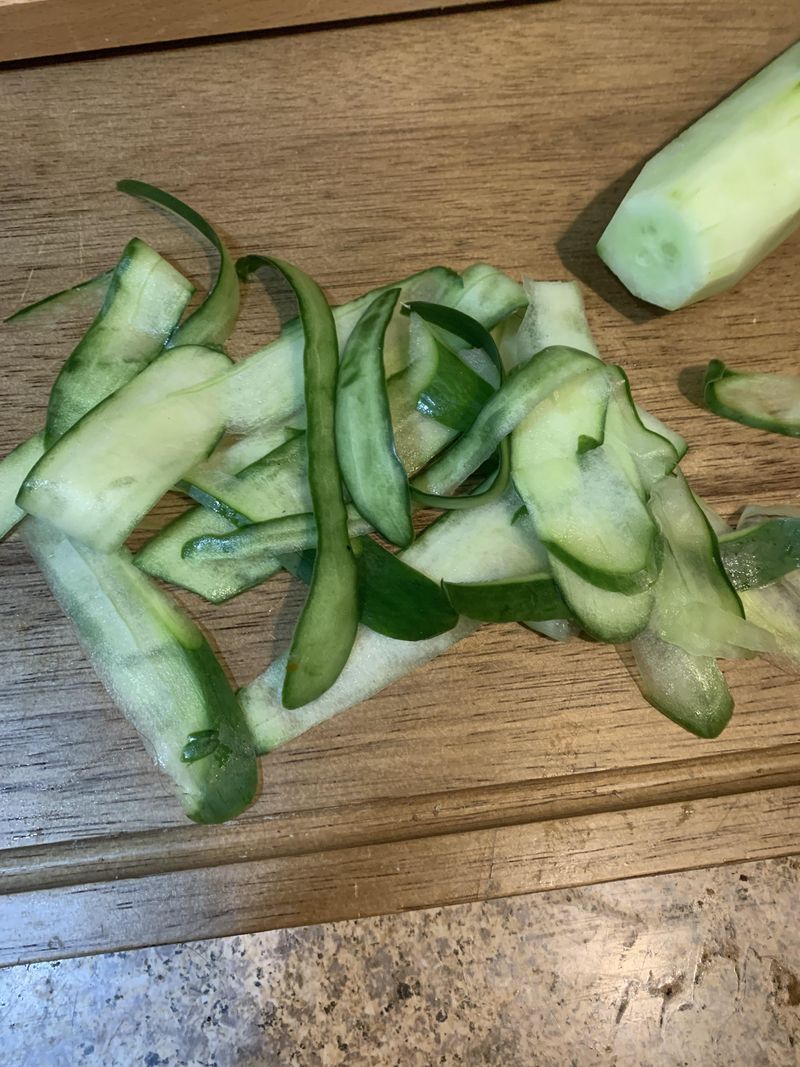
Fresh cucumber peels contain compounds that flies find repulsive. Placing sliced cucumbers or just the peels on decorative plates creates effective, all-natural fly deterrent stations.
Replace the cucumber pieces every few hours for continued effectiveness. Small decorative dishes placed strategically around food areas and seating work best for this method.
At our last garden party, guests kept commenting on the “spa-like” cucumber arrangement. Little did they know those decorative touches were actually working hard to keep flies from joining our celebration.
13. Create Carnivorous Plant Displays
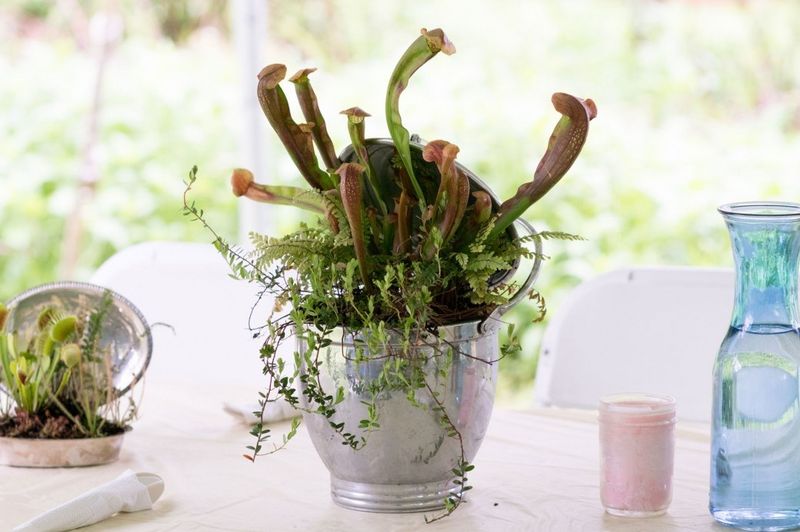
Venus flytraps and pitcher plants don’t just add unique visual interest – they actively trap and digest flies. These fascinating plants use sweet-smelling secretions to lure flies into their traps.
Group several plants together in decorative containers for maximum impact. Place these natural fly catchers near food preparation areas or dining spaces where flies tend to congregate.
The conversation starter value of these plants is almost as good as their fly-catching abilities. Children especially love watching the Venus flytraps in action during our summer barbecues.
14. Install Wind Chimes Strategically
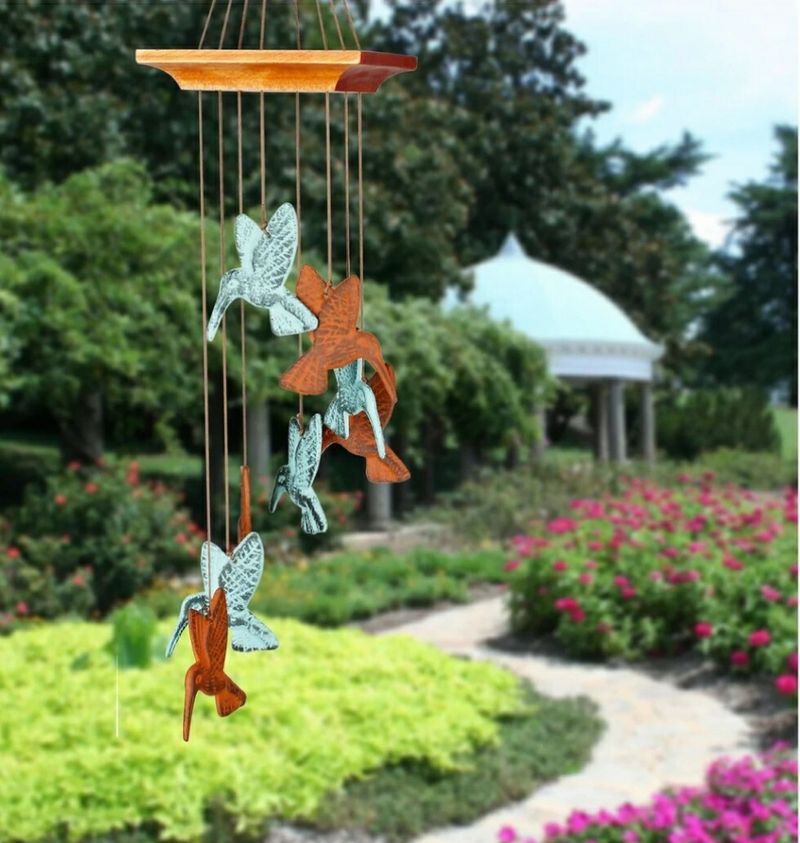
The unpredictable movements and sounds of wind chimes create an environment flies instinctively avoid. Their erratic flight patterns and sensitive vibration detection make them wary of such disturbances.
Copper and aluminum chimes work particularly well, as these metals may also create subtle electromagnetic disturbances that further confuse flies. Hang several sets around your patio for comprehensive coverage.
We originally hung wind chimes purely for their soothing sounds, but the noticeable reduction in fly activity was an unexpected benefit that made outdoor meals much more enjoyable.
15. Light Citronella Candles Correctly
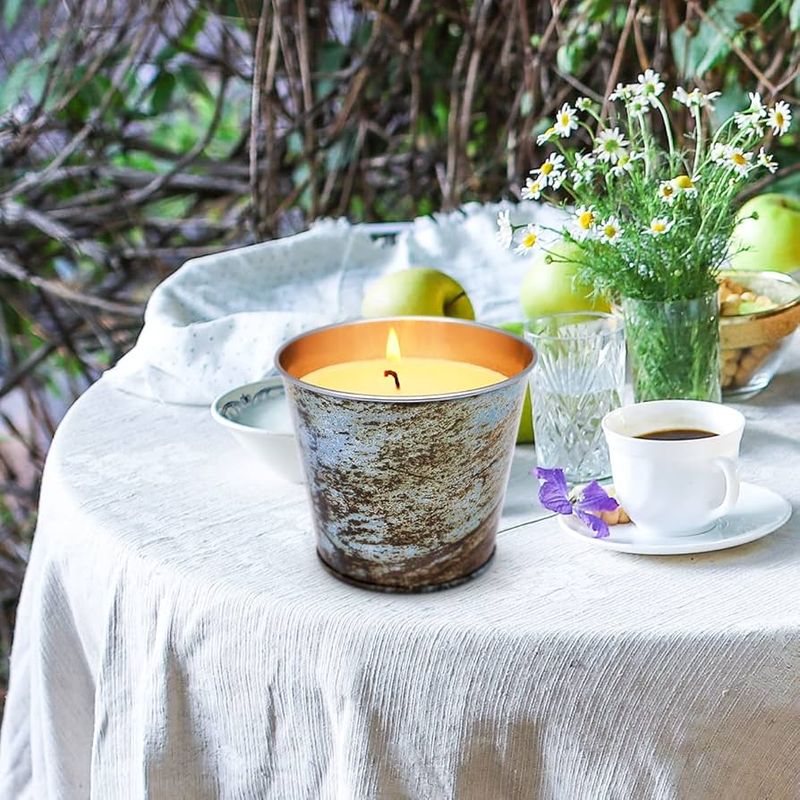
While common, citronella candles are often misused. For maximum effectiveness, light them 30 minutes before outdoor gatherings and place them in windless areas where the smoke can rise undisturbed.
Using candle holders that elevate the flames to just below table height creates a barrier of scent exactly where flies typically approach food. Multiple smaller candles work better than one large one.
After years of disappointing results, I discovered proper citronella candle placement made all the difference. Now they’re part of my three-layer defense system along with herbs and essential oil sprays.

